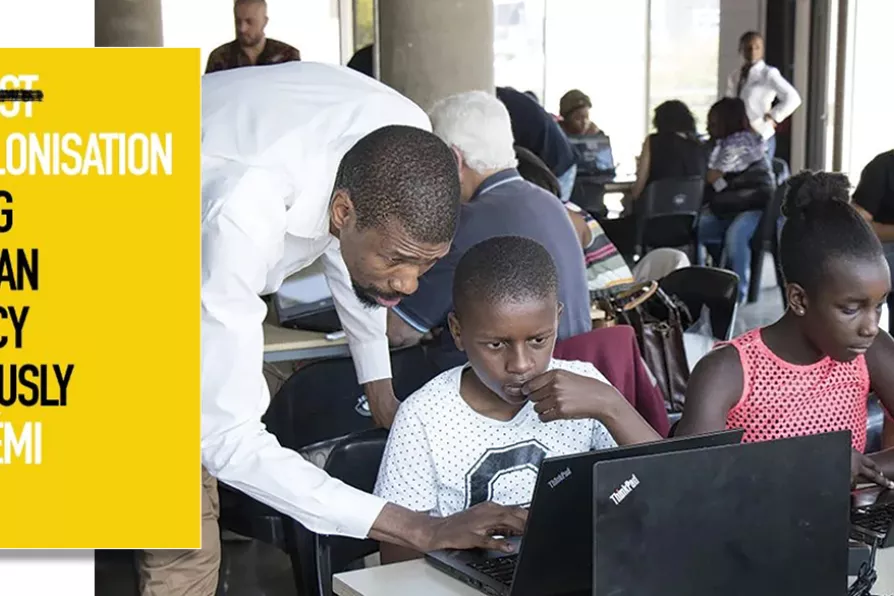JOHN GREEN, MARIA DUARTE and ANGUS REID review Fukushima: A Nuclear Nightmare, Man on the Run, If I Had Legs I’d Kick You, and Cold Storage

 ID AFFIRMATION: WikiAfrica Education initiative teaches South African students to decolonise the internet with Wikipedia
[Siphosihle Mkhwanazi/CC]
ID AFFIRMATION: WikiAfrica Education initiative teaches South African students to decolonise the internet with Wikipedia
[Siphosihle Mkhwanazi/CC]
Against Decolonisation: Taking African Agency Seriously
by Olufemi Taiwo
Hurst £14.99
DECOLONISATION has become highly topical as an issue, along with the challenges that Black Lives Matter poses to racism more generally.
In so many different contexts students have been demanding the decolonisation of their programmes of study, challenging the continuing legacy of colonial assumptions, especially colonial assumptions about the superiority of Western cultures, devaluing the histories of non-Western cultures in the process. There are so many issues here for the left to consider.
Against decolonisation: Taking African agency seriously offers a controversial contribution to these debates.

MARJORIE MAYO welcomes an account of family life after Oscar Wilde, a cathartic exercise, written by his grandson

ROGER McKENZIE expounds on the motivation that drove him to write a book that anticipates a dawn of a new, fully liberated Africa – the land of his ancestors

On the centenary of the birth of the anti-colonial thinker and activist Frantz Fanon, JENNY FARRELL assesses his enduring influence

MARJORIE MAYO recommends a disturbing book that seeks to recover traces of the past that have been erased by Israeli colonialism









